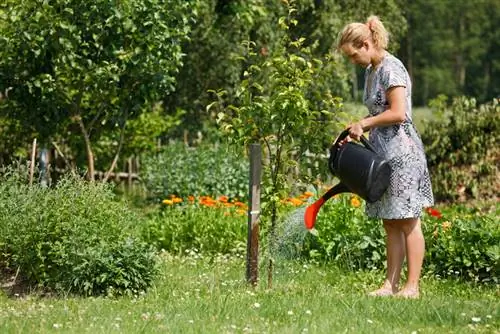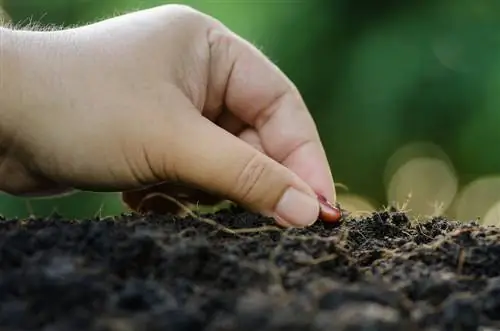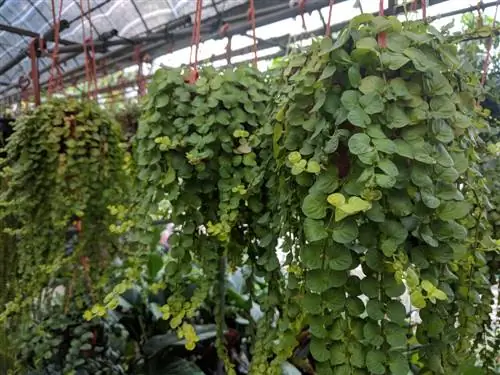- Author admin leonars@hobbygardeners.com.
- Public 2023-12-16 16:46.
- Last modified 2025-01-23 11:22.
The pennywort adapts to almost any location. It can thrive in beds, pots or aquariums. It roots successfully in shady places and also likes to let the sun shine on its leaves. With care we intervene in a balancing manner.

How do you properly care for the pennywort?
Caring for pennywort includes watering as needed, fertilizing sparingly, regular cutting to limit spread and help with overwintering. The plant is undemanding and thrives in beds as well as in pots or aquariums.
Watering only as needed
In the aquarium and at the edge of the pond, the pennywort usually has plenty of water available. If it grows in a balcony box or has a very sunny location, we have to keep the water balance at the desired level with additional watering. The soil should always be moist, but the plant must not be waterlogged.
Fertilize with long intervals
An organic fertilizer such as horn shavings (€32.00 on Amazon) or compost can be used for the pennywort. But the nutrients of a mineral fertilizer are also well accepted. When and how often the herb is fertilized must be decided depending on the situation.
- The balcony box needs to be fertilized regularly
- Pond water, on the other hand, is usually rich in nutrients
- Mix soil with fertilizer when planting
- fertilize approximately every 2-3 years
Contain the spread
Cutting can become a necessity soon after planting, because the pennywort grows quickly and takes over larger and larger areas with its runners. However, pruning can also achieve denser growth. Cutting the shoots or tearing out the rooted runners is possible at any time and is well tolerated. However, the best time is spring or alternatively autumn.
The cutting material is suitable for propagation. In this way, a rooted runner can simply be planted in another place and 10-15 cm long head cuttings can be obtained from the shoots.
Tip
The pennywort is not poisonous! Its leaves and shoots are even edible. For example, they enrich salads or can be prepared into a he althy, delicious tea.
Help with wintering
The pennywort is hardy and can grow outside by the pond or in the bed all year round. Make sure you have enough water even in winter. In very sunny areas, dry damage is possible without shading. However, after cutting back, the plant will sprout again.
In the aquarium, the plant does not even come into contact with frost. Even more so in a balcony box or bucket.
- choose a protected and shady wintering spot
- Wrap the container and place it on Styrofoam






